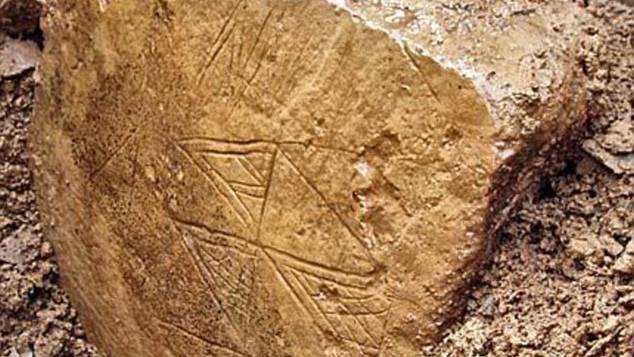Archaeologists discover ’finest ever’ piece of Neolithic art that was part of vast temple complex built in 3,500BC
Source: dailymail.co.uk
Archaeologists have found an astonishing piece of Neolithic artwork that was buried for 4,500 years.The stone creation - which is decorated on both sides and has been described as one of the ‘finest ever’ to be found in Britain - was uncovered last night on the Ness of Brodgar in Orkney, Scotland.
It was found at the base of the south-west internal corner of the Neolithic ‘cathedral’ at the site, which covers 2.5 hectares and is believed to have been occupied from as early as 3,500BC.
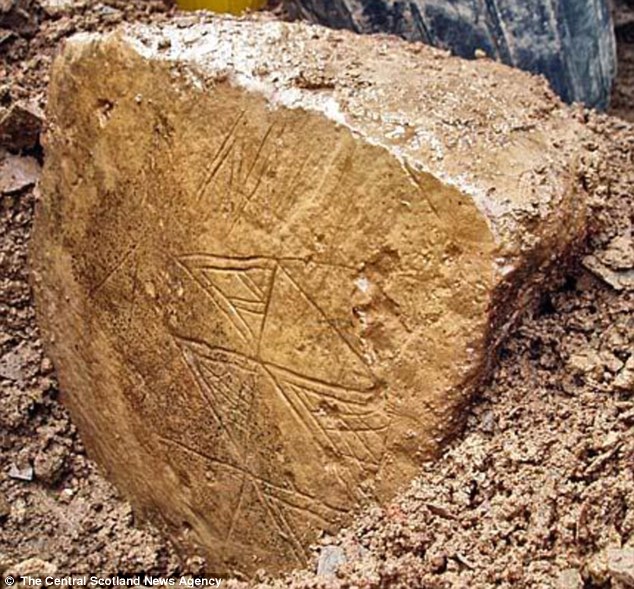
Impressive: The stone art work - which is decorated on both sides and has been described as one of the ’finest ever’ to be found in Britain - was uncovered last night on the Ness of Brodgar in Orkney, Scotland
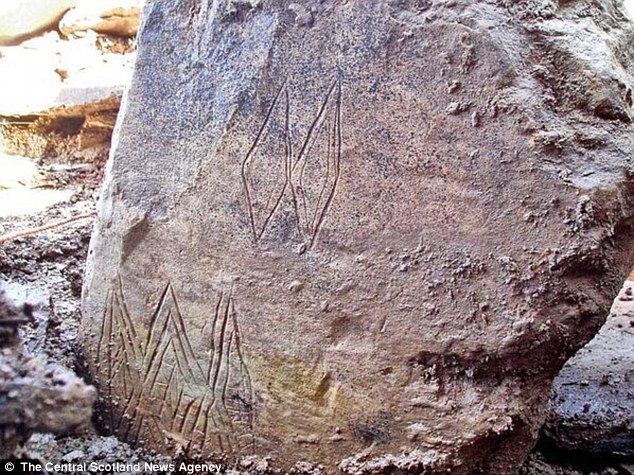
Ancient: The other side of the stone, whch was found at the base of the south-west internal corner of the Neolithic ’cathedral’ at the site, which covers 2.5 hectares and is believed to have been occupied from 3500BC
Neolithic man built a vast temple complex at the Ness of Brodgar, with some parts constructed more than 5,000 years ago, even before the Ancient Egyptians had started building the pyramids.
Excavations began in 2003 at the site, which has provided evidence of housing, decorated stone slabs, a massive stone wall with foundations, and a large building described as a Neolithic cathedral.
Once protected by two giant walls, each more than 330ft long and 13ft high, the complex at the Ness of Brodgar contained more than a dozen large temples, with one measuring almost 270 sq ft.
They were linked to outhouses and kitchens by carefully constructed stone pavements. The bones of sacrificed cattle, elegantly made pottery and pieces of painted ceramics lie scattered there.
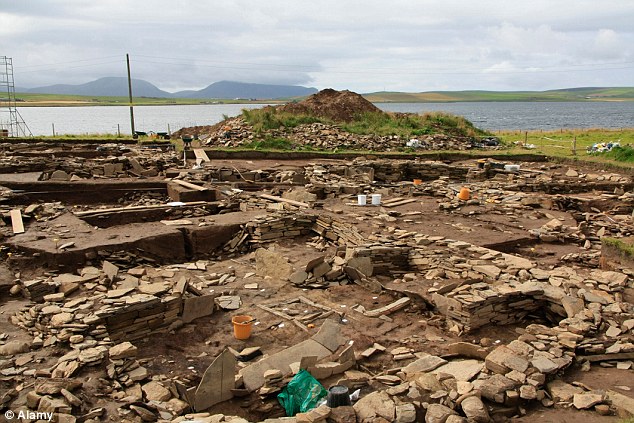
Excavation: Neolithic man built a vast temple complex at the Ness of Brodgar, with some parts constructed more than 5,000 years ago, even before the Ancient Egyptians had started building the pyramids
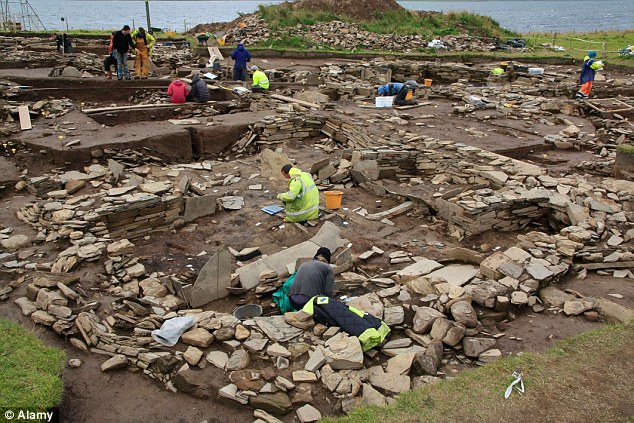
Digging: Excavations began in 2003 at the site, which has provided evidence of housing, decorated stone slabs, a massive stone wall with foundations, and a large building described as a Neolithic cathedral
But the exact purpose of the complex is a mystery. The stone has been described as better than previous examples of Neolithic artwork found at Skara Brae and Maeshowe in the 1970s and 1980s.
An online diary kept by archeologists at the site said today: ‘[This is] perhaps the finest piece of art we have recovered from the site, and one of the finest from the UK ever, amazing and awe inspiring.
‘As we slowed to draw breath at the beauty of the revealed panel, a cry went up that an equally impressive design was apparent on one of the other sides of this large triangular block of stone.
‘Although the basis of the designs of interconnecting triangles can be loosely paralleled on a slab discovered at Skara Brae in the 1970s, a lightly inscribed stone in Maeshowe discovered by Patrick Ashmore in the 1980s and some Irish art.
’This is a much finer and more complex piece of art.
‘Many of the triangles are filled with cross-hatching and other designs. An initial wash has also revealed a finely incised chevron design and small cup marks.’
Neolithic: UK’s First Farmers
The people of the Neolithic, the new Stone Age, were the first farmers in Britain, and they arrived on Orkney about 6,000 years ago.
They cultivated the land, built farmsteads and rapidly established a vibrant culture, erecting giant stone circles, chambered communal tombs, and a giant complex of buildings.
As recently as May 2012 it was discovered that they were responsible for inventing raving.
In gatherings equivalent to the Glastonbury Festival, the men of the age would spend several days eating, drinking and dancing.
Herds of cattle were slaughtered to provide food and dancing would continue late into the night during the summer months.
Source: dailymail.co.uk
